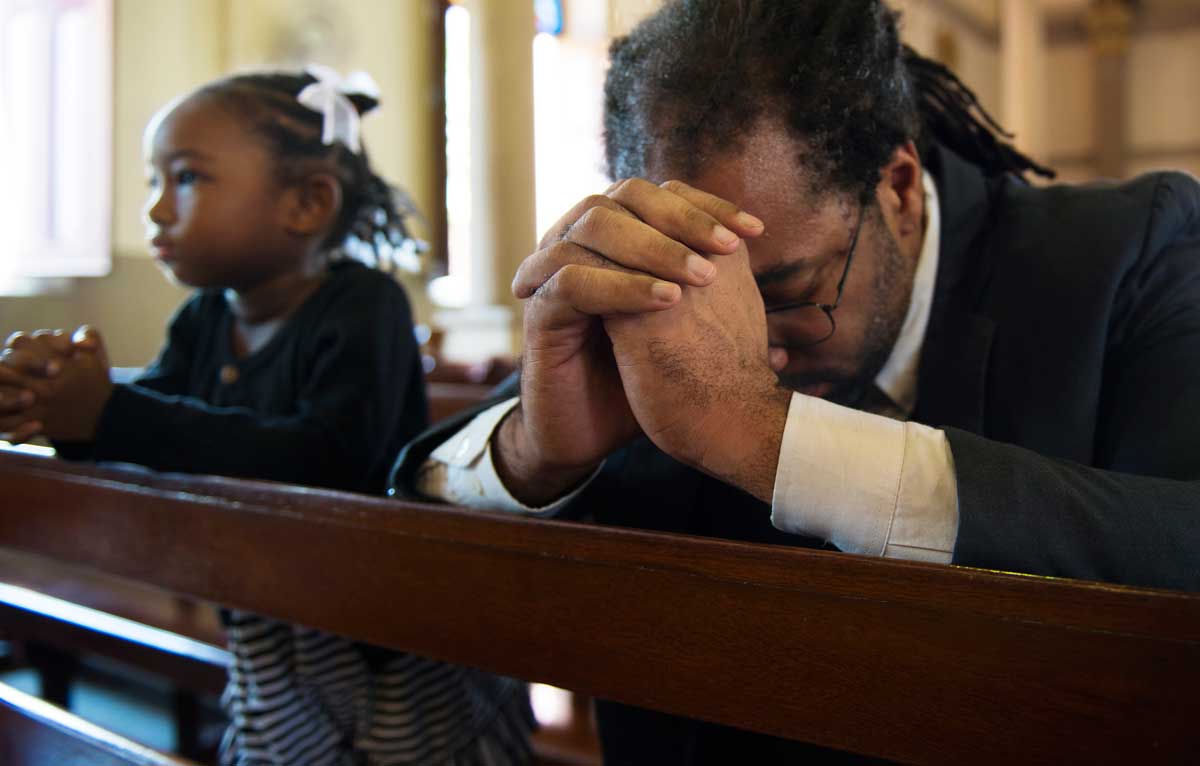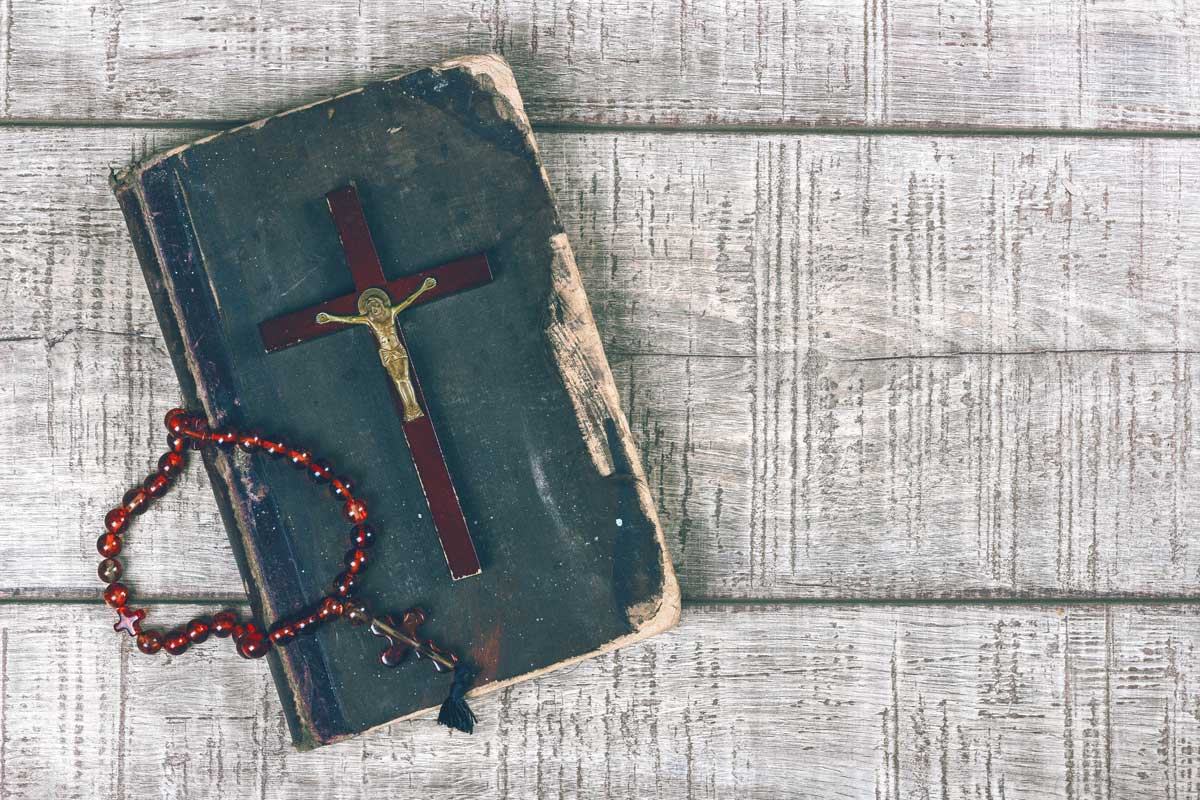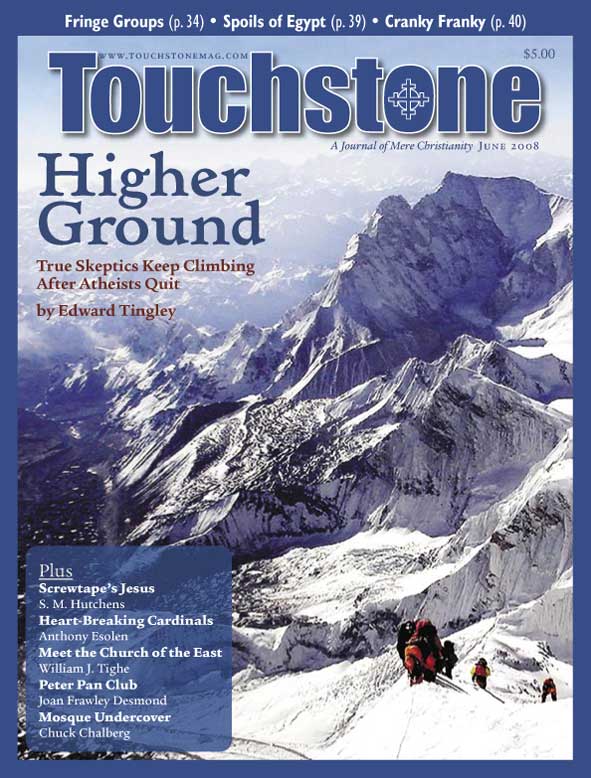The Choirmaster
I wonder how many Christians would include the name “Asaph” in their answer to the query, “What authors, over the years, have most influenced your life of prayer?” In fact, however, Asaph’s contribution to the prayer life of believers has been immense for a very long time. By my rough calculation, for instance, an average monk, if he has lived in his monastery fifty years, has prayed prayers composed by Asaph somewhere in the neighborhood of 30,000 times. Curiously, that figure multiplies by nearly ten the number of years that have elapsed since the death of Asaph.
Now, to gain some estimate of Asaph’s importance in the history of prayer, multiply that larger number—30,000—by the hundreds of thousands of believers—Jews and Christians—who have prayed the Book of Psalms regularly during the past three millennia. Asaph wrote twelve of those psalms.
Teacher & Seer
It seems to me that Asaph’s importance in the history of worship is threefold.
First, there was the immense responsibility he assumed when David appointed him to be the choirmaster in the tabernacle after its arrival in Jerusalem early in the tenth century before Christ. This Levite took charge of David’s efforts to regulate and beautify the renewal of Israel’s worship during the half-century prior to Solomon’s construction of the Temple.
Although Moses himself had left impressive examples of psalmody (Exodus 15:1–18; Deuteronomy 32—33; Psalm 90 [Greek 89]), it is David who is chiefly credited with placing a special emphasis on music in Israel’s worship. Indeed, much of the Book of Psalms is ascribed to David personally.
Whatever his preference for things liturgical, however, the king had many other responsibilities. When Asaph the Levite came to his attention, David was happy to entrust him with the musical expression and adornment of Israel’s corporate worship.
Asaph’s ministry was more than a matter of musical and pedagogical skill. It was recognized to have a certain prophetic quality that justified the expression, “Asaph the Seer” (2 Chronicles 29:30).
Second, Asaph trained a whole generation of singers and other musicians who would carry on that tradition when Solomon constructed the Temple just a few decades later. Many of those singers were Asaph’s own sons and grandsons.
This musical heritage endured for many centuries, and the later liturgical renewals associated with Hezekiah and Josiah took their inspiration and direction from the traditions handed down in the house of Asaph. And when the Jews returned from Babylon in the sixth century, the music of their new Temple was once again entrusted to “the sons of Asaph,” that guild of singers and musicians who took their guidance and inspiration from David’s famous Levite.
Because of the prominence given to this ministry in the Books of Chronicles, I find very attractive the hypothesis that the Chronicler was a member of this Asaphite guild. Indeed, it is difficult to see how an outsider would have had access to the unusual amount of family history evidently at the disposition of the Chronicler.
Third, as I mentioned above, believers have been reciting and chanting Asaph’s own psalmody for three thousand years. These are Psalms 50 and 73 to 83 (Greek 49 and 72 to 82).
Historical Memory
Among the themes treated in these particular psalms, one is most struck, I suppose, by their constant recourse to Israel’s history to provide the components of Asaph’s maschil, or contemplation. He thinks deeply on the meaning of the Exodus—the removal of the shoulder’s burden, the people’s journey through the desert—the vine brought forth from Egypt, the conquest of the Promised Land and the people’s “planting” to the River, the battles of the Judges against the likes of Oreb and Zeb, God’s rejection of the shrine at Shiloh in order to establish his reign in Jerusalem, and the Lord’s choice of David to shepherd his people.
These historical memories of Asaph form the substance of the believer’s prayer. His psalms instruct the soul on the ways of God, as he invites us to listen to “the dark sayings of old,” those “things that our fathers have told us,” so that we can hand them on to our own children, as we have done for 3,000 years.
Patrick Henry Reardon is pastor emeritus of All Saints Antiochian Orthodox Church in Chicago, Illinois, and the author of numerous books, including, most recently, Out of Step with God: Orthodox Christian Reflections on the Book of Numbers (Ancient Faith Publishing, 2019).
subscription options
Order
Print/Online Subscription

Get six issues (one year) of Touchstone PLUS full online access including pdf downloads for only $39.95. That's only $3.34 per month!
Order
Online Only
Subscription

Get a one-year full-access subscription to the Touchstone online archives for only $19.95. That's only $1.66 per month!
bulk subscriptions
Order Touchstone subscriptions in bulk and save $10 per sub! Each subscription includes 6 issues of Touchstone plus full online access to touchstonemag.com—including archives, videos, and pdf downloads of recent issues for only $29.95 each! Great for churches or study groups.
Transactions will be processed on a secure server.
more from the online archives

14.1—January/February 2001
The Christian Heart of Fatherhood
The Place of Marriage, Authority & Service in the Recovery of Fatherhood by John M. Haas

24.6—Nov/Dec 2011
Liberty, Conscience & Autonomy
How the Culture War of the Roaring Twenties Set the Stage for Today’s Catholic & Evangelical Alliance by Barry Hankins
calling all readers
Please Donate
"There are magazines worth reading but few worth saving . . . Touchstone is just such a magazine."
—Alice von Hildebrand
"Here we do not concede one square millimeter of territory to falsehood, folly, contemporary sentimentality, or fashion. We speak the truth, and let God be our judge. . . . Touchstone is the one committedly Christian conservative journal."
—Anthony Esolen, Touchstone senior editor







